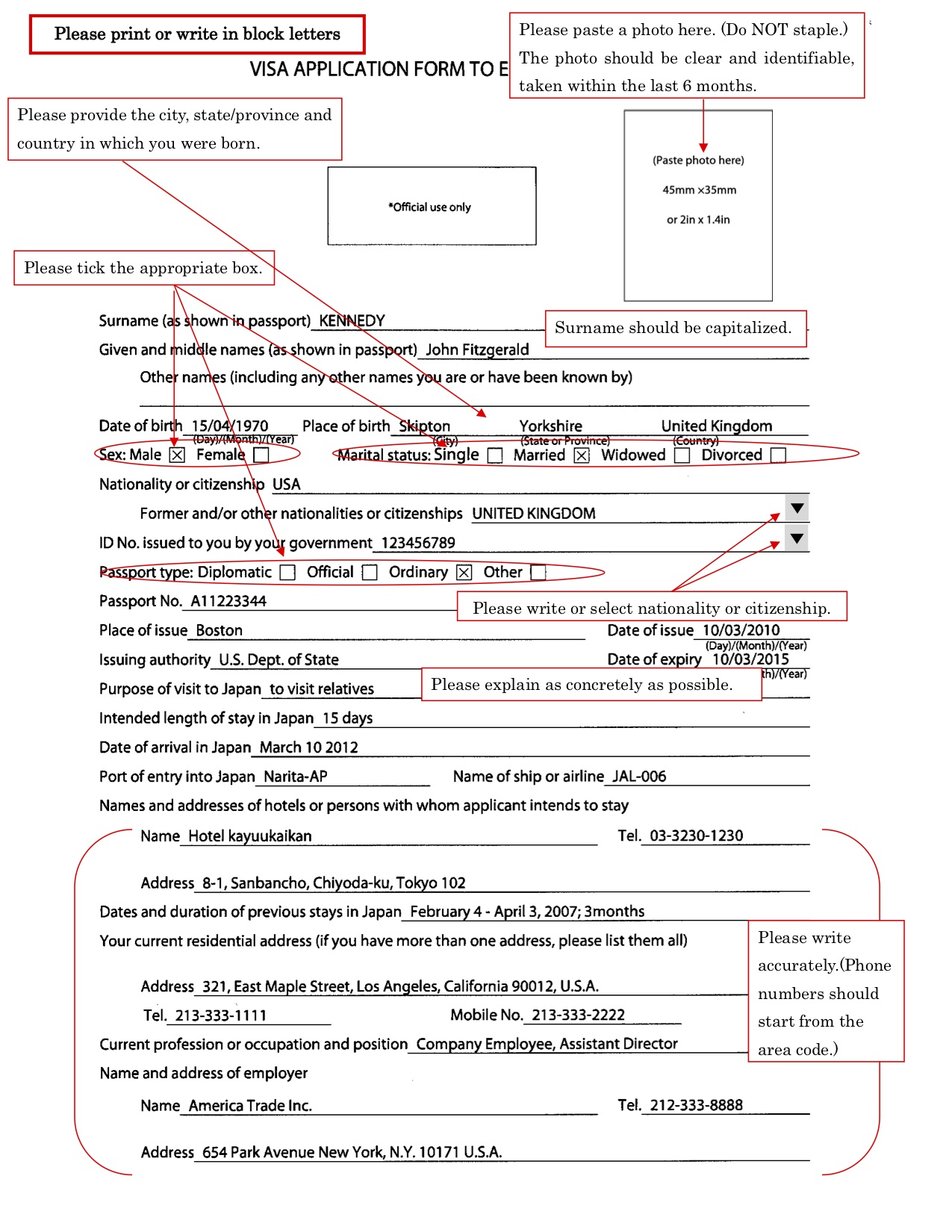Japan Breeding Visa Hoax: Debunking The Myth & Real Visa Facts
Is Japan offering "breeding visas" to attract foreigners and boost its declining birth rate? The answer, despite widespread rumors, is a resounding no. The viral narrative, fueled by social media and online speculation, is ultimately a fabrication.
The genesis of this misinformation can be traced back to a satirical article published in 2018. The piece, intended as an April Fool's Day joke, proposed a fictional "breeding visa program." This prank, however, has taken on a life of its own, propagating the false idea that Japan is actively seeking foreigners to father children in an attempt to counter its demographic challenges. This has led to a surge in online searches and discussions, creating a misleading perception of Japanese immigration policies.
While the "breeding visa" concept is entirely fictitious, the reality of Japan's immigration policies is quite different. The nation faces a serious issue with a shrinking and aging population, resulting in a labor shortage that is impacting various sectors. The Japanese government is indeed making significant adjustments to its visa regulations, but these changes are primarily focused on attracting skilled workers and addressing workforce deficiencies, not on promoting population growth through the means described by the hoax.
- Alice Rosenblum From Rise To Leaks Onlyfans What You Need To Know
- Pemba Social Impact Driving Change Empowering Communities
The Japanese government, acutely aware of its demographic woes, is exploring various strategies to incentivize childbirth and support families. On Friday, March 31, 2023, Minister Ogura, the official overseeing efforts to address the declining birthrate, unveiled a comprehensive draft proposal. This proposal includes measures like increased financial support for childrearing and education, as well as salary increases for younger generations to encourage marriage and parenthood. These measures represent a genuine effort to tackle the problem, but they are distinct from the fabricated "breeding visa" scheme.
In reality, Japan offers numerous visa options for foreign nationals wishing to live and work in the country. These visas are designed to attract skilled labor, promote cultural exchange, and facilitate long-term residency under specific conditions. It is essential to understand the actual visa types and requirements to navigate the immigration process accurately.
Lets delve into the core of this misinformation and clear up the confusion surrounding the Japan breeding visa by presenting accurate information.
- Unveiling Aagmaalmen Details Competitors Amp Insights In 2025 Google Discover
- Kristi Noem Bikini Nra More What You Need To Know
| Category | Details |
|---|---|
| The Myth | The "Japan breeding visa" is a fictional concept that went viral online, falsely claiming that Japan is issuing visas to encourage foreigners to have children to combat its low birth rate. The idea stems from a satirical article. |
| The Reality | Japan has real visa programs to attract foreign workers and address its demographic challenges, focusing on skilled labor and economic growth. The changes aim to address its worker shortage, not increase its population with a specific "breeding" program. |
| Official Visa Types | Japan offers various visa types for foreigners, including:
|
| Challenges and Misconceptions | The primary challenge is the spread of misinformation like the "breeding visa" hoax. The misconceptions are that Japan is desperate for population growth and is open to any foreigner having children in the country. In reality, the visa process is rigorous, with specific requirements and qualifications based on the visa type. |
| Government Initiatives | The Japanese government is focused on tackling the low birth rate by:
|
| Visa Exempt Countries | Citizens of various countries are exempt from visa requirements for short stays (typically up to 90 days) for tourism, business, and other purposes. Some of these countries include:
|
Note: Information on visa requirements can change. Always consult the official website of the Japanese Ministry of Foreign Affairs or the Japanese embassy or consulate in your country for the most up-to-date and accurate information.
The "breeding visa," as it is commonly referred to, is not a legitimate visa category. The term, however, is often associated with the "Specialist in Humanities/International Services" visa. This visa is not granted to encourage foreigners to have children but to allow skilled professionals in specific fields to work in Japan.
The reality of Japanese immigration policies centers on attracting skilled workers to address specific labor shortages and fill critical roles in the economy. These policies are carefully crafted and require applicants to meet stringent requirements, including possessing specific skills, educational qualifications, and work experience. Therefore, the idea of a simplified visa process centered around procreation is a gross misrepresentation of the complex system.
The focus, as exemplified by Minister Ogura's proposal, is on creating a more supportive environment for families within Japan. The intent is to incentivize people to marry and have children within the existing cultural and societal framework.
The persistent rumor of a "breeding visa" highlights the power of the internet to disseminate misinformation, particularly on social media platforms. This instance serves as a case study for the spread of false information and the importance of verifying sources before accepting claims as fact. Many young people worldwide, particularly those from Western countries, are drawn to Japan. Their inspiration often comes from cultural figures like PewDiePie, which adds another layer to the allure of Japan.
A detailed breakdown of this misinformation reveals the following:
- Origin: The myth originated from a humorous April Fool's Day article published in 2018 by Soranews24.
- Claim: The posts circulating online falsely allege that Japan is issuing a "breeding visa" to address its worker shortage.
- Truth: The viral posts are inaccurate and misleading.
- Actual Policy: Japan's immigration policies are designed to attract skilled workers, not to increase its population through a specialized "breeding" program.
- Emphasis: The proposed replacements system aims to ensure talent development.
As of September 2022, the Foreign Press Center Japan (FPCJ) initiated a series of press briefings on demographic shifts, recognizing it as a pivotal issue for Japan's economic and societal trajectory. This series reflects the serious attention being given to this key issue. Japan's birthrate in 2021 was the lowest since records began in 1899, underscoring the urgency of the situation.
This persistent online interest in "breeding visas" is evident in the trends observed by Google Trends and other search analytics tools. The term recently ranked among the top 10 Japan-related search terms in the United States.
For South African citizens and others interested in immigrating to Japan, thorough research and understanding of the genuine visa options are essential. The "Specialist in Humanities/International Services" visa, for example, has specific requirements that must be met, and the "breeding visa" is not a recognized category.
The fact that the initial source of this misinformation was an April Fool's Day article emphasizes the importance of critical thinking. Individuals should always verify information from official sources, such as the Japanese Ministry of Foreign Affairs or the Japanese embassy/consulate in their home country, rather than relying on social media or unverified websites.
Article Recommendations
- Cookie Dough Delights Recipes Tips Ranking
- Alice Rosenblum Onlyfans Leaks More What You Need To Know



Detail Author:
- Name : Loren Littel
- Username : fabian90
- Email : creynolds@hotmail.com
- Birthdate : 1979-03-14
- Address : 666 O'Connell Locks Suite 424 Kaelynchester, ME 39365-3054
- Phone : 901-846-3815
- Company : Stark, Armstrong and Schneider
- Job : Textile Worker
- Bio : Aut doloremque quis quae ea fugit autem deleniti. Est ipsum tempore tenetur illo assumenda vitae rem nobis. Aut iusto quo quia maiores nam.
Socials
tiktok:
- url : https://tiktok.com/@kale.bins
- username : kale.bins
- bio : Voluptas aperiam provident doloremque. Ipsa quia atque ex reiciendis aperiam.
- followers : 3894
- following : 1705
linkedin:
- url : https://linkedin.com/in/kale6246
- username : kale6246
- bio : Sit voluptatem et dolores quia.
- followers : 5163
- following : 2788
instagram:
- url : https://instagram.com/kale_bins
- username : kale_bins
- bio : Voluptas voluptatem error exercitationem reprehenderit. Voluptatem quibusdam ipsam eos aliquid.
- followers : 3708
- following : 634
facebook:
- url : https://facebook.com/kbins
- username : kbins
- bio : Et rerum voluptas earum magni fuga.
- followers : 1248
- following : 234